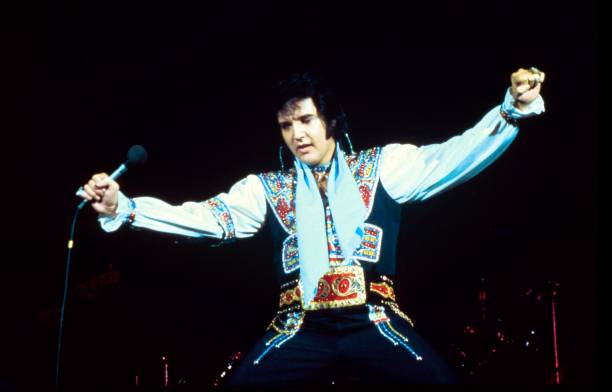 Introduction and Short Summary of the Song
Introduction and Short Summary of the Song
Released in August 1955 on Sun Records as the B-side to “Mystery Train,” “I Forgot to Remember to Forget” is one of Elvis Presley’s earliest hits and an important milestone in his career. Written by Stan Kesler and Charlie Feathers, the song is a country ballad that showcases Presley’s ability to deliver heartache with sincerity and charm. Blending country, rockabilly, and hints of rhythm and blues, it became Presley’s first single to top the Billboard country chart, signaling his growing crossover potential. The track played a key role in establishing him as not just a regional rockabilly act but a national star.
Origins of the Song
The song was composed by Stan Kesler, a steel guitarist and songwriter associated with Sun Records, and Charlie Feathers, a country singer and songwriter. Kesler offered the song to Sam Phillips, who believed it would suit Presley’s blend of country and rhythm and blues influences.
---> Scroll down for the VIDEO
Presley recorded the track on July 11, 1955, at Sun Studio in Memphis. Accompanying him were Scotty Moore on guitar, Bill Black on bass, and Johnny Bernero on drums. Unlike some of his earlier Sun recordings, which leaned heavily into rhythm and blues (“That’s All Right,” “Good Rockin’ Tonight”), this track emphasized his country leanings, positioning him as a versatile artist who could thrive in multiple genres.
Why Elvis Released “I Forgot to Remember to Forget”
By mid-1955, Presley was building momentum through live performances across the South, but he had yet to score a major national hit. “I Forgot to Remember to Forget” was chosen for release because it was more traditionally country in style, appealing to a broader audience while still retaining his unique flair.
---> Scroll down for the VIDEO
The single was paired with “Mystery Train,” a blues-influenced rocker that highlighted the other side of Presley’s sound. Together, the two tracks demonstrated his ability to straddle genres, which was key to his eventual domination of popular music.
The strategy worked: while “Mystery Train” became a rockabilly classic, “I Forgot to Remember to Forget” resonated strongly with country audiences. In February 1956, it reached number one on the Billboard country chart, staying there for two weeks. This marked Presley’s first chart-topping single, a critical step in his rise to national prominence.
The Message Conveyed in the Song
The lyrics of “I Forgot to Remember to Forget” revolve around heartbreak and the difficulty of moving on after a failed relationship. The narrator insists he has forgotten his lost love, only to admit that he keeps remembering her despite his best efforts.
Lines like “I forgot to remember to forget her, I can’t seem to get her off my mind” highlight the irony and emotional struggle of trying to let go. The song captures both the humor and the pain of lingering heartbreak, themes that resonated deeply with country audiences in the 1950s.
Presley’s vocal delivery balances vulnerability and confidence. He sings with a smooth, plaintive tone, allowing the lyrics’ bittersweet irony to shine through. His phrasing gives the impression of someone trying to be strong but unable to hide the depth of his feelings.
The Recording and Musical Characteristics
Musically, “I Forgot to Remember to Forget” leans heavily on country ballad traditions while incorporating the rhythmic drive of rockabilly.
-
Scotty Moore’s guitar provides melodic fills and rhythmic accents, blending country picking with rockabilly energy.
-
Bill Black’s upright bass keeps a steady pulse with his signature slap technique.
-
Johnny Bernero’s drumming is subtle, maintaining a gentle shuffle rhythm that supports the song’s ballad tempo.
Presley’s vocal performance is the focal point. His smooth phrasing and heartfelt delivery bring out the song’s emotional core, while his charisma ensures it never feels overly sentimental.
The simplicity of the arrangement allows the lyrics and Presley’s voice to take center stage, making the song both intimate and memorable.
Cultural and Commercial Impact
“I Forgot to Remember to Forget” became Presley’s first number-one hit on the Billboard country chart, an achievement that marked his transition from a regional phenomenon to a national star. Its success helped convince RCA to purchase his contract from Sun Records later in 1955, a move that would change the course of music history.
Culturally, the song highlighted Presley’s ability to appeal to country audiences while still maintaining his rock and roll edge. At a time when the genres were often seen as separate, Presley blurred the lines, helping pave the way for the rise of rockabilly and the integration of country and rock into mainstream pop music.
The song also demonstrated Presley’s appeal beyond his youthful, rebellious image. While songs like “Baby Let’s Play House” and “That’s All Right” showcased his raw energy, “I Forgot to Remember to Forget” revealed his capacity for tenderness and sincerity.
Legacy of “I Forgot to Remember to Forget”
Today, “I Forgot to Remember to Forget” is remembered as one of the pivotal songs of Elvis Presley’s Sun Records period. While it may not have the explosive reputation of “That’s All Right” or “Mystery Train,” it played a crucial role in establishing Presley as a chart-topping artist capable of appealing to multiple audiences.
The track is frequently included in compilations of Presley’s early work and is celebrated as his first number-one single. It also stands as a reminder of the importance of his country roots, which remained a key part of his sound throughout his career.
More broadly, the song illustrates Presley’s versatility and his ability to bring authenticity to a wide range of material. By taking a straightforward country ballad and infusing it with his own style, he created something that felt fresh and personal.
Nearly seventy years later, “I Forgot to Remember to Forget” endures as a landmark in Presley’s career—the moment he first topped the charts and proved that he had the potential to become not just a regional star but an international icon.